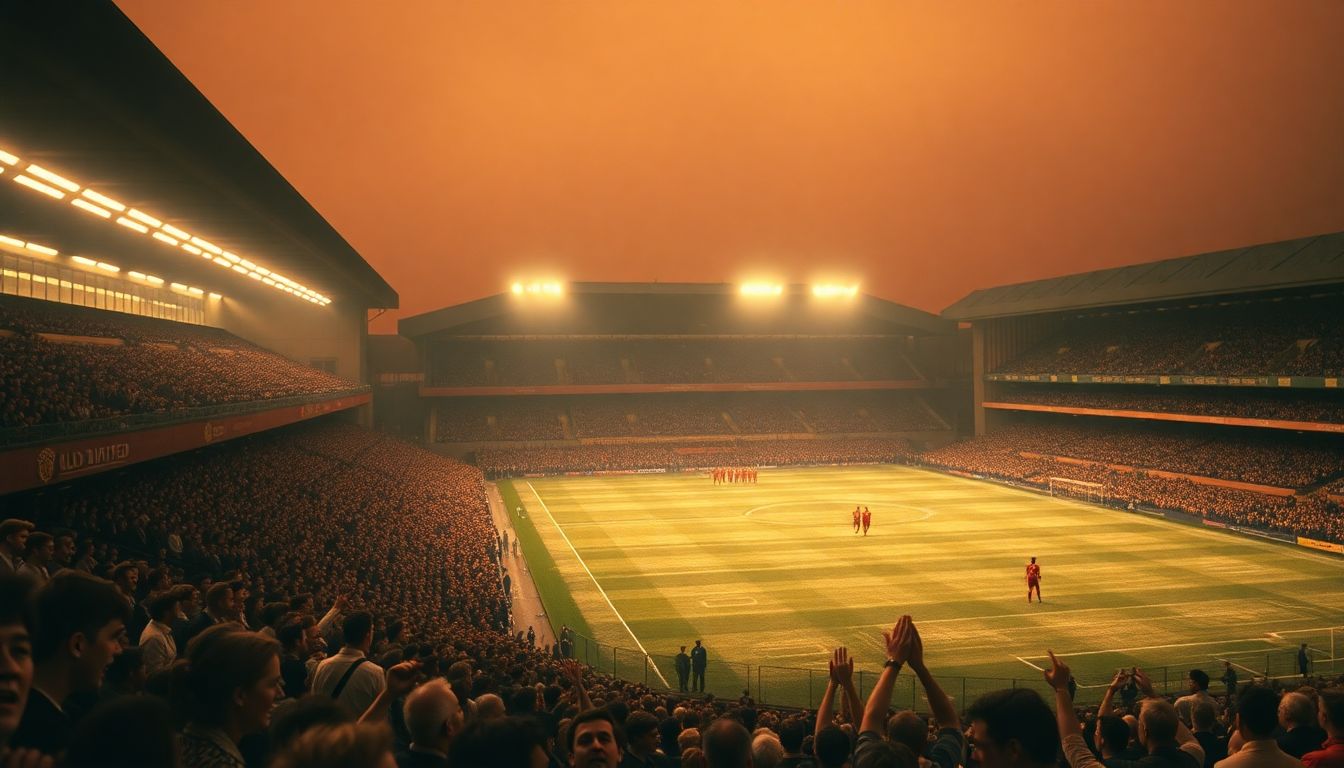The History of Manchester United Football Club: From Newton Heath to Global Giants

The Early Years: From Newton Heath to Manchester United (1878-1920s)
The Formation of Newton Heath LYR Football Club and Early Struggles
In 1878, Newton Heath LYR Football Club was born. Based in Manchester, it started in the local leagues but faced tough challenges. The team struggled financially and on the field. Their early matches were often tough, with mixed results. By the 1880s, they gained some success, but it remained hard to establish a strong foothold.
Key Statistics:
- 1888: Joined the Football League.
- 1892: Finished 10th in the league.
The Financial Crisis and Rebirth as Manchester United
The club hit a severe financial crisis in the early 1900s. By 1902, they were on the brink of collapse. John Henry Davies stepped in, buying the club and changing its name to Manchester United. This shift in identity marked a new beginning.
Establishing a Foundation: The First Decade as Manchester United
As Manchester United, the club aimed for stability. The early decade saw mixed results but laid down the groundwork. Players like Jack Cock started making headlines. The club aimed for promotion in the Football League.
Performance Stats:
- 1908: Won their first league title.
- 1911: Claimed the FA Cup.
The Rise of the "Busby Babes" Era (1950s)
Sir Matt Busby's Arrival and Youth Development
Sir Matt Busby became manager in 1945. His vision was clear: focus on youth development. This led to the birth of the "Busby Babes." Young talents like Bobby Charlton and Duncan Edwards emerged. Under Busby, the club flourished.
Success Statistics:
- 1952: Won the first league title under Busby.
- 1956: Became the first English club to compete in the European Cup.
The Munich Air Disaster and its Impact
On February 6, 1958, tragedy struck when a plane crash claimed the lives of eight players. This devastating loss shaped the club's future and tested its resilience. The community rallied around Manchester United, emphasizing unity and hope.
Rebuilding and Continued Success
The club focused on rebuilding after the disaster. Busby brought in new talent while maintaining the spirit of the "Busby Babes." The team began to find success again, showcasing determination and skill. Notable players like George Best became key figures.
The Post-Busby Era and the Dawn of a New Dynasty (1970s-1980s)
Struggles and Managerial Changes
After Busby's retirement in 1969, Manchester United faced struggles. Several managers tried to fill his shoes, but consistency was lacking. The team faced ups and downs, struggling to find their footing in the league.
The Arrival of Sir Alex Ferguson
In 1986, Sir Alex Ferguson took charge. Initial seasons were tough, but he began building a competitive team. Experts noted that Ferguson's leadership was crucial for the club's future.
Building a Winning Team
Ferguson focused on key signings and youth development. Players like Eric Cantona and Ryan Giggs became central to the team's success. This era saw Manchester United returning to winning ways, lifting trophies and regaining respect.
The Ferguson Years: Dominance and Global Success (1990s-2013)
A New Era of Premier League Success
The 1990s marked a golden age. Manchester United dominated the Premier League, winning multiple titles. Star players like David Beckham and Roy Keane thrived under Ferguson’s guidance.
Achievements:
- 13 Premier League titles during Ferguson's reign.
- 5 FA Cups won.
Champions League Glory
Ferguson led Manchester United to Champions League triumphs. Memorable moments include the famous treble in 1999. The dramatic comeback against Bayern Munich in the final remains legendary.
Legacy and Retirement
Ferguson retired in 2013 after 26 years at the helm. His impact transformed Manchester United into a global powerhouse. He left behind a legacy of success and a winning culture.
The Post-Ferguson Era and the Future (2013-Present)
Challenges and Managerial Changes
Life after Ferguson was challenging. Several managers tried to restore the club’s former glory but faced various hurdles. The team struggled to find consistency, resulting in mixed performances.
Building for the Future
Recently, the club has focused on rebuilding. Investment in young talent and infrastructure is key to competing again. Fans remain hopeful for a brighter future, with young players beginning to shine.
Maintaining Global Brand Recognition
Despite challenges, Manchester United maintains a strong global brand. Their commercial success remains impressive. Experts agree that the club’s worldwide appeal continues to draw fans.
Conclusion: A Legacy Forged in Triumph and Tragedy
The history of Manchester United is rich and complex—from its early days as Newton Heath to becoming a global giant. The club's legacy is built on triumphs and tragedies, shaping the future of football. For fans wanting to connect deeper with the history, visiting the club's museum or reading player biographies can provide valuable insights. The spirit of Manchester United lives on, inspiring future generations.
============================
Comments
Post a Comment